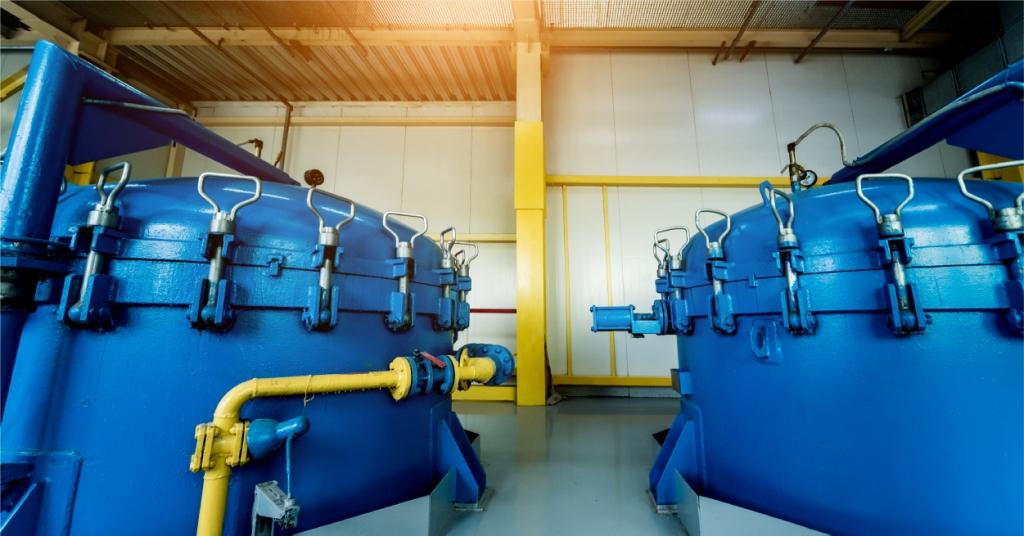Water is an invaluable resource, particularly in arid regions like Oman, where sustainable water management is essential for human and environmental well-being. Among the many methods used to ensure clean and safe water, filtration in water treatment plays a critical role. This blog explores filtration in water treatment, its importance, and how it contributes to effective water management in Oman.
What is Filtration in Water Treatment?
Filtration in water treatment is the process of removing impurities, particles, and contaminants from water by passing it through a filtering medium. This step is essential to ensure that water meets the necessary quality standards for drinking, industrial use, and other applications.
The process works by separating solids from liquids, typically through physical, chemical, or biological means. The filtering medium can range from simple sand and gravel to advanced membranes and activated carbon.
Importance of Filtration in Water Treatment
Filtration is an indispensable component of water treatment systems for several reasons:
1. Improves Water Quality
By removing suspended solids, sediments, and harmful microorganisms, filtration ensures that water is safe for consumption and use in various applications.
2. Protects Public Health
Contaminants such as bacteria, viruses, and chemical pollutants can cause severe health issues. Filtration acts as a barrier, preventing these impurities from entering the water supply.
3. Enhances Efficiency of Treatment Processes
Filtration in water treatment often serves as a pre-treatment step, removing larger particles and reducing the load on subsequent processes like disinfection or chemical treatment.
4. Sustainability
Advanced filtration technologies, such as membrane filtration, are energy-efficient and support sustainable water management practices, which are particularly important in water-scarce regions like Oman.
Types of Filtration Systems
There are several types of filtration systems commonly used in water treatment, each suited to different applications:
1. Sand Filtration
Sand filters are one of the simplest and most widely used methods for filtration in water treatment. Water is passed through layers of sand and gravel, which trap particles and impurities. This method is effective for removing suspended solids and is often used as a primary filtration step.
2. Membrane Filtration
Membrane filtration involves the use of semi-permeable membranes to remove contaminants at a molecular level. This method is highly effective for removing pathogens, salts, and other dissolved substances. Reverse osmosis, ultrafiltration, and nanofiltration are common types of membrane filtration systems.
3. Activated Carbon Filtration
Activated carbon filters are used to remove organic compounds, chlorine, and unpleasant tastes or odors from water. This method is commonly employed in drinking water treatment and industrial processes.
4. Cartridge Filters
Cartridge filters are compact and versatile, used to remove fine particles and sediments from water. They are often used as pre-filters in larger water treatment systems.
5. Multi-Media Filtration
Multi-media filters use layers of different materials, such as sand, anthracite, and garnet, to achieve more effective filtration. These systems are ideal for treating water with a high concentration of suspended solids.
Benefits of Filtration in Water Treatment for Oman
Filtration offers numerous advantages that align with Oman’s water management goals:
- Resource Optimization: By enabling the reuse of treated water, filtration helps conserve limited freshwater resources.
- Environmental Protection: Filtration systems reduce the discharge of pollutants into natural water bodies, protecting ecosystems and biodiversity.
- Cost Savings: Efficient filtration systems reduce maintenance and operational costs in water treatment facilities.
- Sustainability: Advanced filtration technologies support sustainable water practices, essential for long-term water security in Oman.
Ion Exchange: Leading Innovations in Filtration Technology
Ion Exchange Filters are categorized into pressure filters and gravity filters based on the method of water flow, either under pressure or by gravity, through the filter media. These filters utilize various materials, such as fine or coarse sand, anthracite, garnet, and granular activated carbon, as the filtering media.
- INDION Continuous Sand Filters features a unique continuous operation and automatic backwashing system. This makes them an excellent choice for water and wastewater treatment across a wide range of industries. The filters offer a compact and modular design, allowing for easy installation and maintenance, which enhances their suitability for various industrial applications. Their versatile applications include potable water treatment, industrial process water treatment, and tertiary wastewater treatment, offering flexibility across different sectors. These filters are commonly used in municipal water treatment to enhance water quality, in industrial settings to improve process water quality, and in wastewater treatment to facilitate tertiary treatment and nutrient removal.
- INDION Multigrade Filters Pressure offers an efficient solution with its high flow rates and consistent water quality. These filters are engineered to deliver superior filtration performance with a low-pressure drop, minimizing energy consumption and operational costs. Built with durable materials, they are designed to withstand challenging operating conditions, ensuring a long service life. They are versatile and find applications in several sectors, including industrial water treatment, municipal water purification, and desalination pre-treatment, making them a reliable choice for maintaining water quality standards in diverse environments.
- INDION New Generation Multigrade Filters (NGMF) series are designed to efficiently remove suspended solids and turbidity from feed water that has been coagulated and clarified. These filters can handle a maximum flow of 35 m³/h, making them suitable for various industrial applications. Aesthetically designed, lightweight, and easy to install, the NGMF series requires no special foundation, enhancing their versatility and appeal. Constructed from durable plastic materials, the pressure vessel is made of fiber-reinforced plastic (FRP), while the pipework is constructed from polyvinyl chloride (PVC), ensuring robust performance and longevity. The filters are equipped with a single multi-port valve operated by a hand lever for user-friendly operation. To maintain optimal performance, the filters feature a backwashing mechanism that reverses the flow whenever the pressure drop across the unit exceeds a specified limit, ensuring the system remains efficient and reliable over time.
- INDION Activated Carbon Filters are designed to effectively remove free residual chlorine (FRC) from feed water using granular activated carbon as the filter media. These filters are capable of treating feed water at flow rates of up to 170 m³/h. For specialized applications requiring the removal of odors, organic matter, and traces of oil, peat-based activated carbon with larger pores can be provided upon request. Key features of these filters include their compact design for easy installation and maintenance, tolerance to variations in chlorine levels, and built-in pressure gauges for monitoring. The filters are ideal for use in demineralizing and reverse osmosis units and for the removal of contaminants, making them versatile solutions for various industrial applications.
Conclusion
By understanding what filtration in water treatment is and the different types available, communities and industries can adopt the most suitable technologies to enhance water quality. Whether through sand filtration, reverse osmosis, or activated carbon, each method offers distinct advantages tailored to specific water treatment needs.


